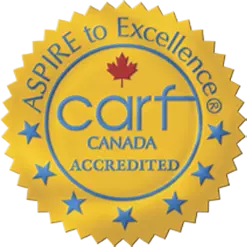Community Group Care Program
Territorial Connections for youth
How do you know where you belong if you do not know where you come from?
One of the 2015 Truth and Reconciliation calls to action, called upon the federal, provincial, territorial, and Aboriginal governments to commit to reducing the number of Aboriginal children in care by: Providing adequate resources to enable Aboriginal communities and child-welfare organizations to keep Aboriginal families together where it is safe to do so, and to keep children in culturally appropriate environments, regardless of where they reside.
In 2016 The Office of The Child and Youth Advocate Alberta (OCYA) released their report and they found, Aboriginal children and families who live outside of their home community are often served by a region that has little to no involvement with their home community. Resolving the challenge of jurisdiction could help ensure that Aboriginal children and families involved with child welfare have a meaningful level of involvement, support, and continued connections to their home community. When an Aboriginal family moves to an urban area, they do not leave their background, culture, and parenting approaches behind. The community where the family lives may change, but Aboriginal children may continue to benefit from relationships and attachments to others in their community beyond their biological parents. When a family living off-reserve becomes involved with the child welfare system, there is still a need for them to be served from an Aboriginal perspective. And there is still a place for culturally relevant and appropriate support.


Many of the youth who have witnessed/experienced violence/abuse will continue to exhibit the symptoms of Trauma and have been diagnosed with Post-Traumatic Stress Disorder and/or other developmental delays. Children who have experienced early and persistent relationship disruption will exhibit the symptoms of Reactive Attachment Disorder. A portion of the children will qualify for the diagnosis of Conduct Disorder or Fetal Alcohol Syndrome Disorder, both serious designations with often poor prognosis. And finally, there may be a variety of substance abuse issues and disorders. This extensive list of issues, events and difficulties describes many of the youth needing the benefit of stable, emotionally, and physically secure relationships to achieve the best possible maturational development. However, the potential contradictory requirement to balance the needs of children with the desire to maximize the on-going integrity of the child’s family makes relational stability much sought after but seldom achieved.
The core of any successful Prevention strategy is development of relationships with goals to help youth move through the Stages of Change to arrest the progress of an established event and to control its negative consequences: to reduce disability and stigma, to minimize suffering caused by existing Trauma, Loss and Grief, and to promote the youth’s adjustment to irremediable conditions, “Minimize the consequences.” The relationships must be positive, constructive, purposeful, and long term. This relationship is not a friendship, but rather a relationship with a purpose that is built on care, trust, and respect and must preserve cultural, familial, and territorial connections.
To be in these positive, purposeful, constructive, and long-term relationships with youth, and families, we must believe that they can change and understand that it takes time to build these relationships. We must with the help of their communities, work with the youth and families to create concrete developments to start to heal what took years to create and prevent any further damage and decrease high-risk behaviors.
In March 2021, the Alberta Child Intervention Information and Statistic Summary stated that 71% of children and youth receiving services in care were Indigenous. This proportion of Indigenous children in care was a 2% increase from the previous year and 81% of children and youth receiving child intervention services were served by Children’s Services Regions.
Changes For Hope Inc has created homes for the youth in care that can be their “Home away from Home”. We have done this through collaboration and by encompassing the community into the agency. We welcome the Teachers and Elders from the community into the homes to create a learning experience and provide teachings for the youth from their nations so that they know where they come from and understand they may return. We are willing to dedicate our home strictly for the use of a single Indigenous Community at the request of their Children’s Services Director and incorporate their policies, customs, and traditions to ensure successful homes for Indigenous youth. If the youth are from different nations, we will strive to ensure that they remain connected to their own nation while learning about other nations as well.
We will ensure that our staffing is experienced in Trauma Informed Care and Indigenous Culture, and we will try to hire Indigenous staff from the community we are engaging with to ensure continuity of culture.
The core of any successful collaboration is the development of relationships. This relationship is not a friendship, but rather a relationship with a purpose that is built on care, trust, and respect and must preserve cultural, familial, and territorial connections.
We want to ensure that all children/youth understand where they come from, and by creating a “Home away from Home” specifically for youth of a single Indigenous Community we can be successful. We advocate for a return to family, however we understand that sometimes this may not be in the youth’s best interest, although we feel maintaining family connections always is. The idea of “Knowing where you come from, and who you are, and how you want to be” is a good starting point for the youth that come to our program. Using a holistic approach, Changes For Hope focuses on the Physical, Emotional, Mental and Spiritual aspects of each youth in our care, understanding that each is at a different place on their journey.
Youth are supported in the relationships that are important to them and to maintain their own culture and practice their religious or spiritual beliefs. Where appropriate, family involvement will be encouraged and outings in the community are supported and encouraged.
Many of the youth who have witnessed/experienced violence/abuse will continue to exhibit the symptoms of Trauma and have been diagnosed with Post-Traumatic Stress Disorder and/or other developmental delays. Children who have experienced early and persistent relationship disruption will exhibit the symptoms of Reactive Attachment Disorder. A portion of the children will qualify for the diagnosis of Conduct Disorder or Fetal Alcohol Syndrome Disorder, both serious designations with often poor prognosis. And finally, there may be a variety of substance abuse issues and disorders. This extensive list of issues, events and difficulties describes many of the youth needing the benefit of stable, emotionally, and physically secure relationships to achieve the best possible maturational development. However, the potential contradictory requirement to balance the needs of children with the desire to maximize the on-going integrity of the child’s family makes relational stability much sought after but seldom achieved.
The core of any successful Prevention strategy is development of relationships with goals to help youth move through the Stages of Change to arrest the progress of an established event and to control its negative consequences: to reduce disability and stigma, to minimize suffering caused by existing Trauma, Loss and Grief, and to promote the youth’s adjustment to irremediable conditions, “Minimize the consequences.” The relationships must be positive, constructive, purposeful, and long term. This relationship is not a friendship, but rather a relationship with a purpose that is built on care, trust, and respect and must preserve cultural, familial, and territorial connections.
To be in these positive, purposeful, constructive, and long-term relationships with youth, and families, we must believe that they can change and understand that it takes time to build these relationships. We must with the help of their communities, work with the youth and families to create concrete developments to start to heal what took years to create and prevent any further damage and decrease high-risk behaviors.

Affiliates





Indigenous youth who live outside of their home community are often served by a region that has little to no involvement with their home community. Changes For Hope “Home away from Home” program through collaboration with the home community ensures that the youth needing placement outside of their communities still feel their communities are with them.

